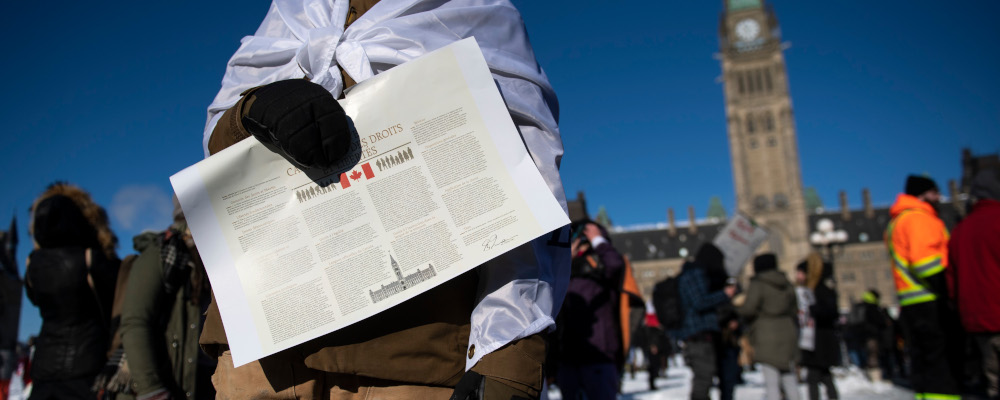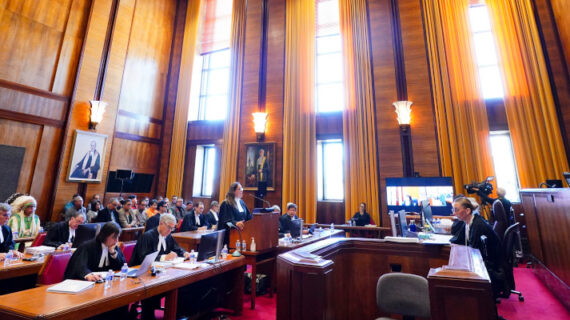While often referred to as the Online Harms Act, the Liberal government’s recently-introduced Bill C-63, if enacted, would go far beyond regulating harmful content on the internet. Among many other things, the bill proposes to make three significant amendments to the Criminal Code.
The first is to specifically define “hatred” under the Criminal Code, which currently includes no such definition. This amendment would define “hatred” as “the emotion that involves detestation or vilification and that is stronger than disdain or dislike,” subject to the exception that a statement will not be deemed hateful “solely because it discredits, humiliates, hurts or offends.”
Meanwhile, the second amendment would significantly broaden the current categories of hate crime offences, to capture any offence under any act of Parliament that is motivated by hatred based on a prohibited ground of discrimination. Currently, the only substantive hate crimes in the Criminal Code consist of prohibitions on wilfully promoting or publicly inciting hatred. In theory, this new provision would turn any federal offence (not just those found in the Criminal Code) into a potential hate crime. Those who commit such offences would potentially be liable for life imprisonment. To say that this is a radical provision would be an understatement.
These provisions have already garnered significant criticism from across the political spectrum. However, Bill C-63’s proposed amendments to the Criminal Code don’t stop there. Perhaps the most significant—and problematic—amendment would allow individual Canadians (with the attorney general’s consent) to seek peace bonds against others whom they fear will commit a hate crime in the future. Under this provision, provincial court judges would be empowered to call these parties to appear before them to determine whether there are “reasonable grounds” to fear that the defendant will commit such an offence.

When a judge ultimately decides that an individual is reasonably likely to commit a hate crime, their powers are far-reaching. Specifically, Bill C-63 allows judges to issue peace bonds against individuals in such cases for up to 12 months that may: require them to abstain from communicating with certain individuals or from consuming drugs and alcohol; place them under house arrest; or (on the application of the attorney general) order that they wear an electronic monitoring device such as an ankle bracelet.
The inclusion of peace bonds (known more formally as “recognizances”) against future hate crimes is arguably Bill C-63’s most draconian provision—which says something in and of itself, considering the other provisions of the bill vying for that title. And yet, at the same time, Canadian lawyers and law students (even constitutionalist ones) may be at a loss to articulate precisely how this provision offends some of the most basic tenets of our legal and constitutional order. To this end, a refresher on the rarely cited but crucially applicable legal doctrine of prior restraints is long overdue.
In short, a prior restraint is a limitation on expression that doesn’t just target the ostensibly harmful effects of that expression but seeks to prevent such expression from taking place at all. This is a departure from the other numerous ways in which our law frequently limits expression: libel, defamation, sedition, and even the current prohibitions on willfully promoting or publicly inciting hatred are all intended to punish expression after it has occurred.
By necessity, prior restraints censor expressive content by turning agents of the state into the licensors of permissible expression. To wit, the evidence that judges will consider when deciding whether to issue the peace bonds envisioned by Bill C-63 will, invariably, include the allegedly hateful content that the individual in question is expected to express. It is by no means unreasonable to fear that certain expressive content will be presumed to cause harm even where such harm has not taken place, much less been proven on a balance of probabilities—the requisite mens rea or “guilty act” that our law requires to establish that a criminal offence has been committed.

The doctrine of prior restraints has seldom been cited by the Supreme Court of Canada. Though the term is largely derived from American legal scholarship and case law, the doctrine itself is rooted in the British law on which Canada’s constitutional order is modelled. Justice Iacobucci recognized as much in his partial dissent in the Supreme Court’s 2000 ruling in Little Sisters Book and Art Emporium v. Canada, citing the 18th-century English jurist William Blackstone’s warning that “Every freeman has an undoubted right to lay what sentiments he pleases before the public: to forbid this, is to destroy the freedom of the press: but if he publishes what is improper, mischievous, or illegal, he must take the consequences of his own temerity.”
Although Justice Iacobucci did not go so far as Blackstone to conclude that prior restraints are “necessarily destructive” of freedom of the press or freedom of expression, his reasons ought to serve as an admonishment against the “inherent dangers” of prior restraints as “particularly severe restrictions on speech.”
Should Bill C-63 become law, the legislation will inevitably be challenged under the Canadian Charter of Rights and Freedoms. The doctrine of prior restraints ought to drive the assessment of any peace bond provisions under Section 1 of the Charter, which only allows for limitations on Charter rights and freedoms if they can be “demonstrably justified in a free and democratic society.” It is doubtful that such a profound limitation on a guarantee as important as freedom of expression can survive constitutional scrutiny under this standard.




